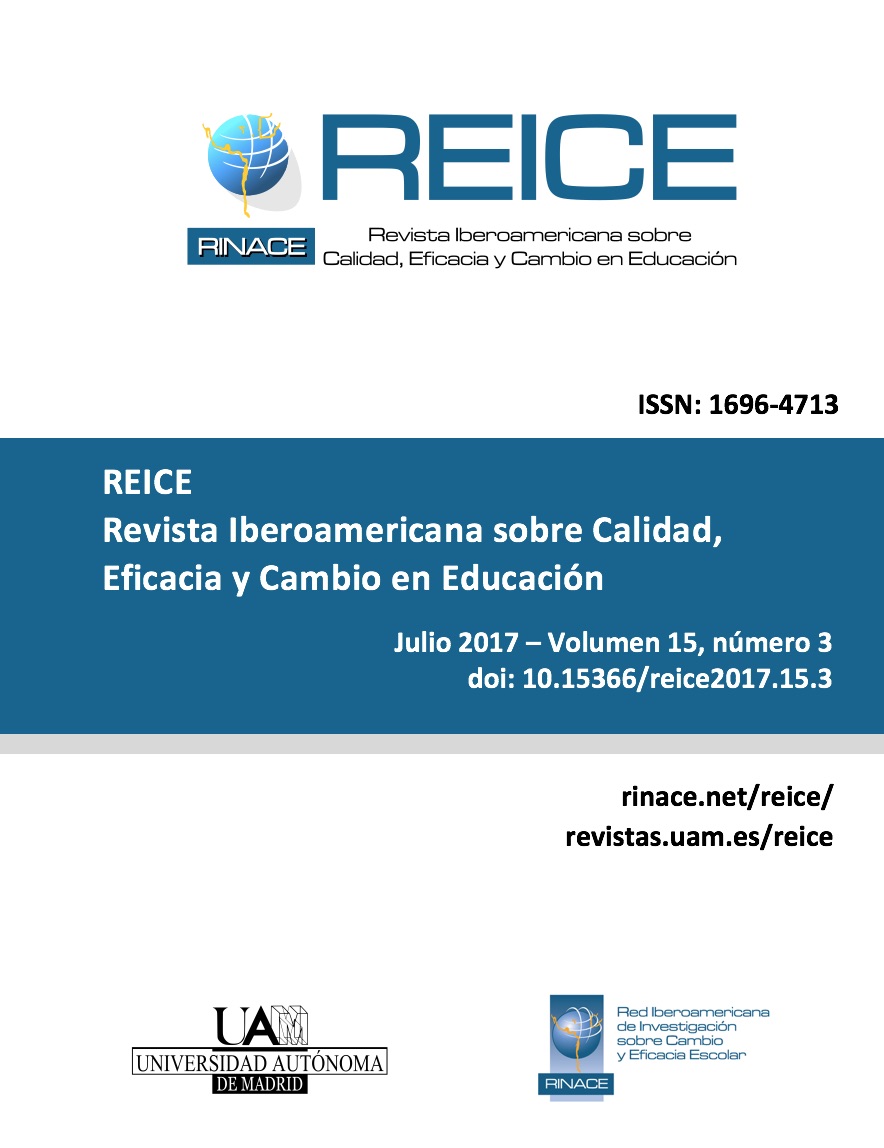What do Websites of Schools Offer to Me? Exploratory Study in Cantabria (Spain)
Keywords:
Information systems, Information technology, Communication technology, Educational management, Educational information.Abstract
In the Information and Communication Society school’s websites is an open window to the world in which anyone can learn and get documentation on the work developed in schools. In this paper, we show an empirical research about all school sites in centers of Early Childhood and Primary Education run by public funds and set in the Autonomous Community of Cantabria. The results show the situation of websites with regard to its presentation, organization, content, usefulness, role given to the educational community and teaching methodology. 86% are well presented, 91% are well organized, there is a great diversity in their content, they are mainly addressed to families and the relationship with the educational community and teaching methodologies could be exploited much more. The findings reveal that the development of the web depends on the center and the contributions made by the people of the educational community, not its geographical context or ownership. Likewise, the ICT coordinator and the Administration can play a stimulating or curbing role in the schools in the design and development of the web.
Downloads
References
Álvarez, C. e Inés, J. (2017). The management of schools’ websites in Cantabria, Spain. Research in Learning Technology, 25(1), 1270579. doi: https://doi.org/10.1080/21567069.2017.1270579
Álvarez, C. y San Fabián, J. L. (2012). La elección del estudio de caso en la investigación educativa. Gazeta de Antropología, 28(1), 1-23.
Balas, E., Mirea, D. y Mirea, L. (2014). The ICT coordinator in school a XXI century education. Journal Plus Education, 10(1), 312-317.
Benito, R., Alegre, M. Á. y González, I. (2014). School educational project as a criterion of school choice: discourses and practices in the city of Barcelona. Journal of Education Policy, 29(3), 397-420. doi: https://doi.org/10.1080/02680939.2013.844858
Cucchiara, M. B. y Horvat, E. M. (2014). Choosing selves: The salience of parental identity in the school choice process. Journal of Education Policy, 29(4), 486-509. doi: https://doi.org/10.1080/02680939.2013.849760
Du Preez, H. J. (2007). Issues to consider during the development and promotion of a primary school web site. Pretoria: University of Pretoria.
García-Romero, J. E. y Faba-Pérez, C. (2015). Desarrollo e implementación de un modelo de características o indicadores de calidad para evaluar los blogs de bibliotecas escolares de centros de educación infantil y primaria. Revista Española de Documentación Científica, 38(1), 67-78. doi: https://doi.org/10.3989/redc.2015.1.1169
Hartshorne, R., Friedman, A., Algozzine, B., Isibor, T. (2006). Secondary schools online: Are high school web sites effective? American Secondary Education, 34(2), 50-66.
Hartshorne, R., Friedman, A., Algozzine, B. y Kaur, D. (2008). Analysis of elementary school web sites. Educational Technology & Society, 11(1), 291-303.
Honiges, A. (2013). School image in the context of new communication technology. Knowledge Horizons-Economics, 5(2), 162-166.
Hu, C. y Soong, A. K. F. (2007). Beyond electronic brochures: An analysis of singapore primary school web sites. Educational Media International, 44(1), 33-42. doi: https://doi.org/10.1080/09523980600922761
LOMCE. (2013). Ley Orgánica 8/2013, de 9 de diciembre, para la mejora de la calidad educativa. (BOE de 10 de diciembre de 2013).
McGarr, O. y McDonagh, A. (2013). Examining the role of the ICT coordinator in Irish post-primary schools. Technology, Pedagogy and Education, 22(2), 267-282. doi: https://doi.org/10.1080/1475939X.2012.755132
Orden EDU/25/2010, de 22 de marzo, por la que se modifica la Orden EDU/87/2009, de 14 de octubre, por la que se regulan las condiciones para la inclusión en el portal educativo Educantabria de las páginas o sitios web de los centros y servicios educativos dependientes de la Consejería de Educación.
Pagán, M. (2013). Análisis y evaluación de las webs municipales de la provincia de Albacete (Tesis doctoral). Universidad de Murcia. Recuperado de http://hdl.handle.net/10201/37215
Poock, M. (2005). Determining the design of effective graduate school web sites. College and University Journal, 80(3), 23-26.
Rodríguez-Miranda, F. P., Pozuelos-Estrada, F. J. y León-Jariego, J. C. (2014). The role of ICT coordinator. Priority and time dedicated to professional functions. Computers & Education, 72, 262-270. doi: https://doi.org/10.1016/j.compedu.2013.11.009
Stewart, T., Jacob, A. M., Jensen, L. I. (2012). School site visits: What can we learn from choice schools in Milwaukee. Recuperado de http://files.eric.ed.gov/fulltext/ED530069.pdf
Tamatea, L., Hardy, J. y Ninnes, P. (2008). Paradoxical inscriptions of global subjects: Critical discourse analysis of international schools' websites in the Asia-Pacific Region. Critical Studies in Education, 49(2), 157-170. doi: https://doi.org/10.1080/17508480802040241
Tubin, D. y Klein, S. (2007). Designing a school website: Contents, structure, and responsiveness. Planning and Changing, 38(3-4), 191-207.
Wells, J. A. y Barron, A. E. (2006). School web sites: Are they accessible to all? Journal of Special Education Technology, 21(3), 23-30. doi: https://doi.org/10.1177/016264340602100303
